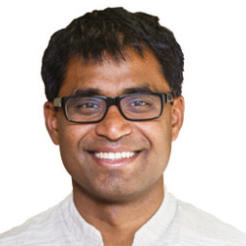Restrictive rules mean too much aid money is wasted on 'fundermediaries', rather than going to organisations on the ground who can spend it best, according to Civicus, a body which exists to strengthen civil society around the world.
Writing in October’s Charity Finance magazine, Dhananjayan Sriskandarajah, secretary-general of Civicus, said too many donors were providing restrictive funding that was difficult for charities to fully utilise.
Sriskandarajah was writing following the launch of his organisation's annual State of Civil Society report.
“Many donors are suffering from ‘logframitis’,” he said. “They want us to package the long-term and systematic change into neat little fundable projects that fit their programme and timelines."
He said donors often worked “through complex chains of ‘fundermediaries’”, channelling “ever-smaller chunks of money with ever-larger relative reporting requirements”.
While many civil society organisations are “good at playing the game”, the most innovative and ambitious initiatives rarely involve project proposals, he said.
Sriskandarajah said a problem for civil society organisations came from measures making it difficult to access foreign funding. This is made a greater problem by the fact that “domestic funders are not yet able or willing to support change-seeking activities”, he said.
“The situation is most acute in countries that have apparently ‘graduated’ into middle-income status and have therefore fallen off donors’ priority lists,” he said.
North versus south
According to Sriskandarajah, too much funding is directed to NGOs in the northern hemisphere with those in the South facing a shortfall.
“The latest estimate from 2011 suggests that Southern-based NGOs get only around 1 per cent of all aid directly. The rest of civil society’s allocation goes to Northern organisations that pass on an unknown share of their funding to CSOs in developing countries,” he said.
"Despite all the promises about ‘funding the frontline’ and investing in the capacity of Southern civil society, very little resource actually reaches those who need it most and, arguably, could spend it best."
Local organisations specialising in humanitarian activities face the greatest problems, Sriskandarajah said, with funding falling from 0.4 per cent of the OECD-DAC's official $166bn development budget in 2012 to 0.2 per cent in 2014.
"Private funders are generally better, but I would argue that they are nowhere near where they should be in terms of funding the frontline,” he said.
Sriskandarajah said Civicus was working to "encourage them to be braver" and curb their "tyranny".
But he said the onus was also on civil society to "change some of its behaviours" - from weaning itself off grant funding, to exploring new ways of raising money and designing activities that don't rely on financial support.
"Many of us have been so busy filling out forms that we have failed to notice that the science of delivery is killing the art of social transformation," he said.
Civicus was founded in 1993 with the aim of strengthening citizen action and civil society around the world. It currently has members in 165 countries.









